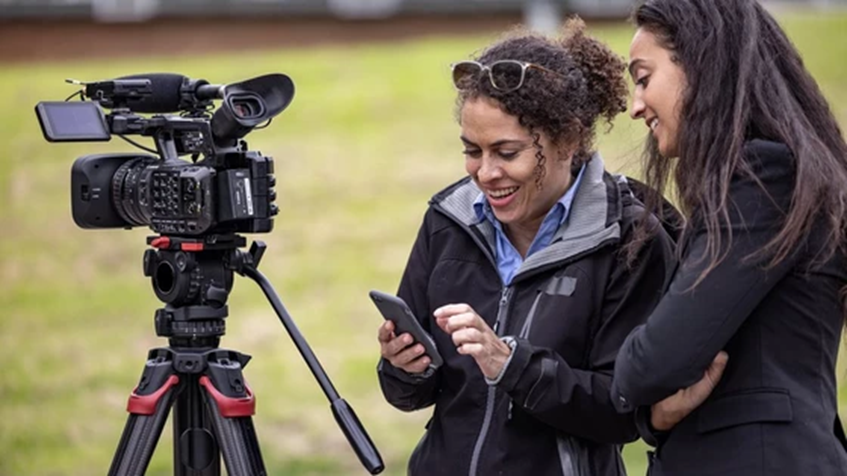Whether you’re an aspiring videographer or a content creator who uses video format, a high-quality video camera is paramount for premium results, aside from your skills. These days, with gear and tech being so affordable, it makes sense to buy them outright. However, there are hidden expenses associated with both buying and renting high-end video equipment.
When deciding whether to buy or rent, there are several factors to consider, including cost, versatility, and frequency of use, particularly if you want to work with cinema primes or need a steady rig for a heavier camera. To make the best business decision for your needs, carefully consider the benefits and drawbacks of renting vs. buying.
What Are the Advantages of Renting Video Cameras?
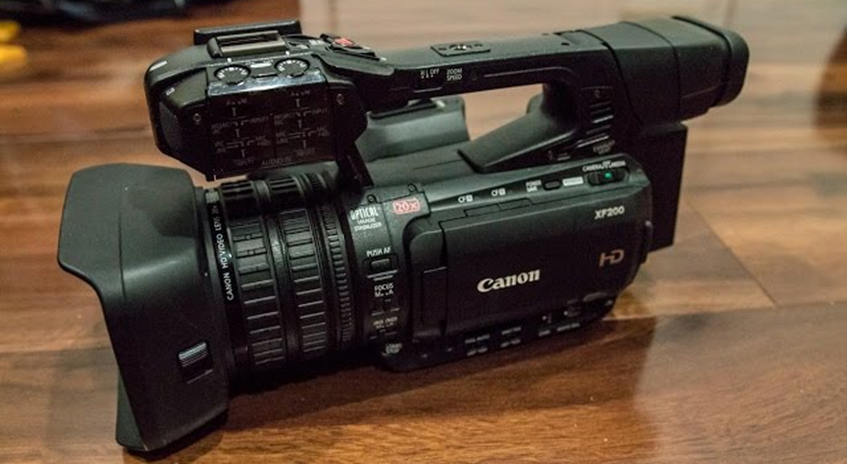
Both companies and content creators now have viable options when it comes to high-quality video cameras for hire. Compared to purchasing equipment, renting provides many benefits, including flexible scheduling, inexpensive access to the newest models, and the chance to test different models. Here are the pros and cons that you need to consider when you hire video cameras.
Flexible Pricing
For content creators, renting equipment has many benefits, including flexibility in terms of pricing. By renting, you can select from a range of equipment at various rental prices, guaranteeing that you’ll find the ideal option for your needs and budget.
You can get a high-quality video camera for hire for much less than its selling point, saving you money in the long run. When you rent, the initial costs are much lower; you don’t have to deal with a sizable lump payment to get the video camera you need.
Wide Gear Range
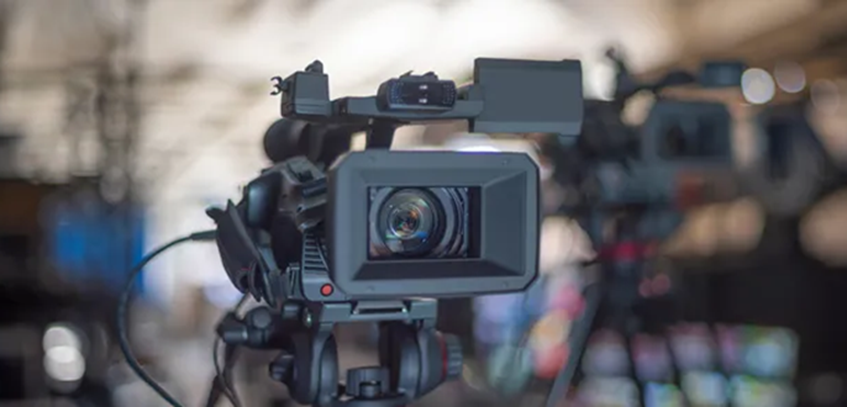
The ability to hire top-notch video cameras at discounted prices is one of the main benefits of renting, making it a game-changer regarding allowing you access to high-end gear for your video productions. Trustworthy rental companies have a large selection of cameras, lenses, lighting equipment, and other accessories, many of which are high-end models that may be beyond the budget of most people. You get to test out various models to ensure you get the equipment that best fits your taste and requirements.
Reduced Maintenance Expenses
Renting video equipment is a hassle-free maintenance option. The majority of rental companies take great pride in providing their customers with well-maintained equipment because this ensures that the equipment you rent is in excellent condition and is ready to use right out of the box.
Furthermore, renting allows you to avoid the risk of buying a camera that, in the quick-changing scene of technology, will become out-of-date in no time. By renting instead of buying, you can try out new gear or stay current without making a long-term commitment.
What Are the Disadvantages of Renting?
Just like with anything else, there are certain cons you should be aware of when deciding to rent your video gear, including the fact that you won’t be able to get it whenever you want and have no profit potential, as you don’t keep the video camera you’re renting.
Lack of Availability and Range
The main drawback of renting is that a camera might not always be available when you need it, depending on the rental company. That means that sometimes you’ll have to wait until the particular equipment piece becomes available or select something else that might not exactly fit your needs.
Another con is that some rental companies don’t carry a large selection of equipment, particularly for specialised or niche applications, making finding the appropriate tools for your project harder and compromising its efficacy or quality. That’s why you should always rent from specialised stores that offer a wide range of video cameras for hire.
No Profit Potential
Having no profit potential is another disadvantage of renting. hen you buy a video camera, you can sell it later and possibly profit. You’re just paying for a short-term fix without creating any long-term equity when renting.
What Are the Advantages of Buying Video Equipment?
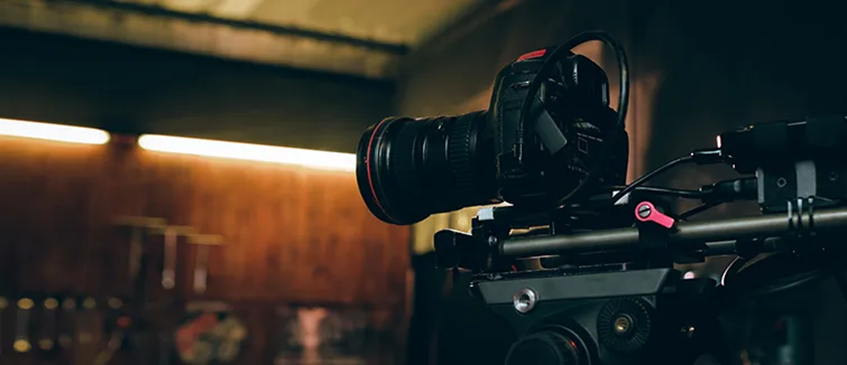
Ownership, flexibility, and long-term investment potential are the main benefits of buying video cameras. However, there are drawbacks, including the requirement for maintenance and upgrades, and possible depreciation.
Ownership
Brand-new, unused equipment that you can call your own is another level of excitement. Many content creators and videographers find owning their equipment to be practical because whenever inspiration strikes, you can reach for your equipment right away. Availability and scheduling conflicts aren’t a concern when you own your camera because everything you need is right there, waiting for you to use it.
Opportunities for Passive Income
Possessing your gear also allows you to earn passive income because you can rent it out to others if you’re not using it all the time. That can eventually make the equipment a profitable investment in addition to helping to pay out its initial cost. When not in use, a lot of photographers and videographers rent out their equipment on websites such as ShareGrid. Additionally, you can always sell your gear when the time comes to upgrade or move to a different kind.
Immersion and Experience
When you have a video camera, you can take all the time and patience you need to learn how to use it well. Working with the same equipment regularly will help you become fully trained to use it and learn all of its potential, which will eventually lead to improved images and videos.
What Are the Disadvantages of Buying Your Video Gear?
The Initial Cost
Buying video equipment can have significant upfront costs, making it an investment that many content creators can’t allow. Some people will have to take out a loan or make a huge down payment to afford the equipment they require.
Maintenance Expenses
These vary depending on the kind of equipment and how complex it is. While some gear may require more frequent or specialised care, others may only need routine servicing to ensure optimal performance. The total cost may also increase if specific parts or components wear out over time and need to be replaced. And it goes even more up if the parts aren’t available; it could be harder to find replacement parts for an older or less common video camera model.
Obsolescence
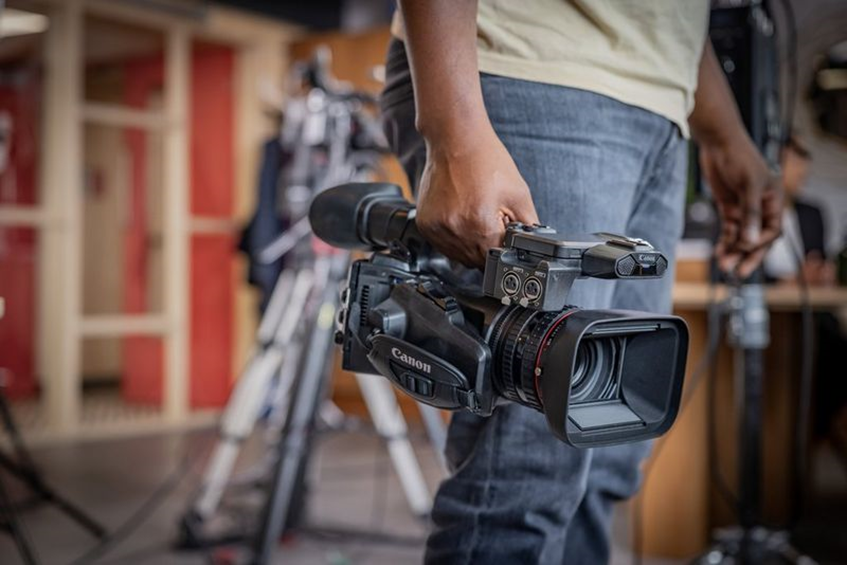
The tech market is quickly evolving, with new equipment offering enhanced features and capabilities being released regularly, the industry is always changing. Buying equipment carries the risk that it may become outdated before it pays out.
The Final Verdict
In the end, your situation, the demands of the project, and your financial situation should determine whether you should buy or rent equipment. Reputable rental services and equipment suppliers can assist you in making the best business decision for your requirements, whether you decide to buy or rent, and guarantee that you have access to the appropriate equipment when you need it.
